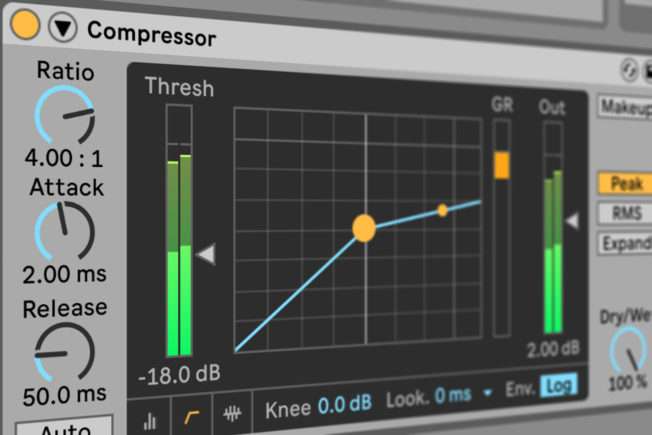
Compression is a very vital tool that can be used to control and maintain a good dynamic range within a vocal.
In mixing and audio production, compression is usually done post recording and one of the questions that arise is whether compression can be done during the actual recording process or not.
Recording with compression is pretty much optional. If you want to save time and have more control over the dynamics while you record, you can go ahead and record with compression provided you have prior knowledge of your compressor and how general compression works. You should also do well not to over compress because once you have the compressed signal recorded there is no going back. Which means that if you end up using too much compression, you’ll end up with an over compressed signal in your DAW.
When recording with compression can serve you best
An Even Signal
Compression can help you record with a much more controlled dynamic range which can help you eliminate the process of using a lot of compression post recording.
When compression parameters are used the right way, you can ensure that you get a well rounded even signal that can give you more control over the processes you can apply to make the vocals or instruments better.
Furthermore, using compression while recording can save you time which you can further dedicate to other processes.
Better performance
Using compression can also help the musician perform better.
You can run the signal being recorded through a compressor and then feed it into the headset of the person recording so they can have a feel of their vocal.
This can make them deliver an even better vocal performance because of the controlled dynamics of their own signal being fed into their headphones.
The person that is recording can record at various vocal projection levels and get a well compressed even vocal that can insight them to deliver even better results.
It Encourages a natural performance
Recording with compression can help the musician deliver a more authentic recording.
Forexample; a song meant to be recorded in a low tone can be easily recorded when compression is being used during the process of recording because it can simply control the dynamic range and ensure that the vocals don’t drown.
Another great use of compression during recording is with loud vocals. A compressor used during recording can help you avoid clipping and distortion that would be the result of a loud singer or performer.
Instead of using limiters post recording that can end up eating up some parts of the vocal, you can avoid this with a compressor used during recording.
The downside to using compression while recording.
It’s not good for beginner producers
To be able to record efficiently with a compressor, you need solid knowledge of your compressor and a good understanding of how compression actually works.
Therefore it is not advisable to record with effects if you’re a beginner in music production.
There’s no going back
Another downside of recording with a compressor is that once you record the signal into your DAW theres no going back to reverse what you’ve done. Which means that a bad compression settings can end up giving you undesirable results of which you can’t undo but redo.
This can be a hassle if you don’t understand your compressor and are simply winging it because you could lose a good recording take due to the settings that you utilized with your compressor.
The only option to undo the damage would be to re-record which can’t guarantee the same vocal performance.
Related questions:
What does too much compression sound like?
Over compression is a very common issue faced by most producers that don’t have adequate knowledge of compression.
When you over compress a vocal you squash it to the point where your dynamic range is dramatically reduced which would result in a signal sounding very flat and very pale.
This is because over compression squeezes out any room for a vocal to breathe and be free to expand and sound the best that it can. Which is why you should avoid using too much compression.
You can use a variety of compressors by they need to be used with subtlety to give them each a chance to deliver their own level of compression.
Does a compressor make you sound better?
Compression can help a vocal stand out and have an even volume level which is great for the listener.
Some other types of compression like for example tube compression can help introduce some interesting frequencies into a vocal that can give it a more polished sound that is glued together and blended well.
One thought on “Should I Use A Compressor When Recording Vocals?”
Comments are closed.